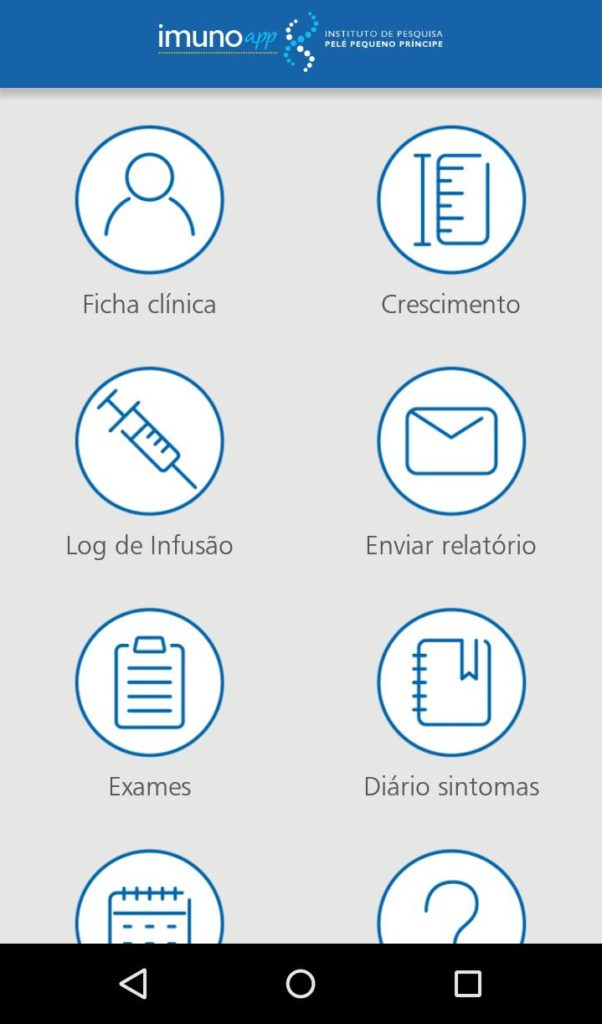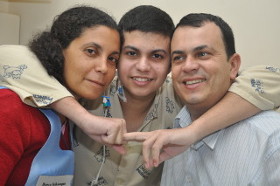Pequeno Príncipe develops app for patients with primary immunodeficiencies

The Pequeno Príncipe Hospital is a pioneer in launching the first Latin American self-care app for patients who use immunoglobulins. Baptized Immuno app, the app is initially available for HPP patients and should be available soon, free of charge, to patients from all over Brazil by the end of the year.
This exclusive and innovative platform was developed in partnership with the Biomedical Computing course at the Federal University of Paraná (UFPR) along with the Friedrich-Alexander-Universität Erlangen-Nürnberg, of Germany. The Imuno app helps to aggregate the patient’s history record from diagnosis to adulthood through clinical data annotations, lab exams control and a record of periodic infusions of immunoglobulin – which offers antibodies and protects from many infections – thus monitoring the evolution of the disease.
In Brazil, when the patient undergoes a treatment of periodic infusion of immunoglobulin sponsored by the federal health system (SUS), the medication’s origin can often vary, and there is no guarantee of standardization. “Every time they change the brand of immunoglobulin, it’s like applying the medication for the first time and we must be mindful of the user’s sensitivity to the product,” explains the immunologist Carolina Pranee, the project’s coordinator.

On account of this reality, the app becomes an excellent ally for the families. “The patient may record all their information. For example: the type of medication used, barcode, batch, infusion site, speed of application, symptoms felt at the time of application and after, among others. This way, you will have a history of your medication use,” illustrates the doctor.
Incidence
It is estimated that one in every 8.000 children born alive suffers from the disease. In Brazil, it is estimated that there are 170,000 people with primary immunodeficiency, 70% to 90% still undiagnosed. Approximately 50% of them may need to use immunoglobulin. In Argentina and the United States, as well as in several countries in Europe, the medication can be applied at home. “Home treatment is a worldwide trend, and if patient has their medical history easily accessible by phone it can help a lot,” says the specialist.
About Primary immunodeficiencies
The immune system is responsible for the organism’s defence. Some people, however, may be born with some genetic modifications that alter the production or functioning of the cells and result in repetitive infections. These modifications are part of a group of more than 300 diseases known as primary immunodeficiency (PID). There is no prevention, so early diagnosis is very important so that the patient may receive a directed course of treatment that will increases life expectancy with quality of life.
More
New York hosts 2017 edition of Pequeno Príncipe Gala
The Pequeno Príncipe Gala reaches its seventh edition and will once again take place in Manhattan’s Gotham Hall on October 12, starting at 6PM
Get to know the story of Juninho
After nine months of treatment at the Pequeno Príncipe Hospital, he went from 88 to 154 pounds and was able to travel to Miami and undergo a bowel transplant
Pequeno Príncipe invests in new technologies to save lives
The latest acquisition is “Robot Laura”, which uses artificial intelligence to detect patients who are at risk of entering sepsis
Other Editions
©2026 . Pequeno Príncipe Complex . All Rights Reserved





